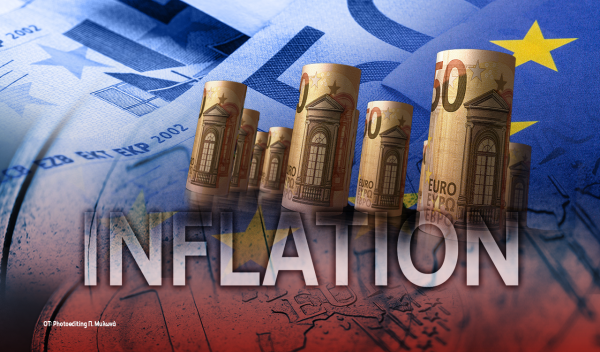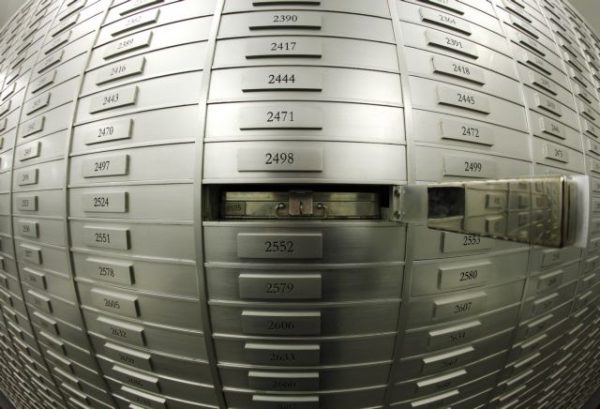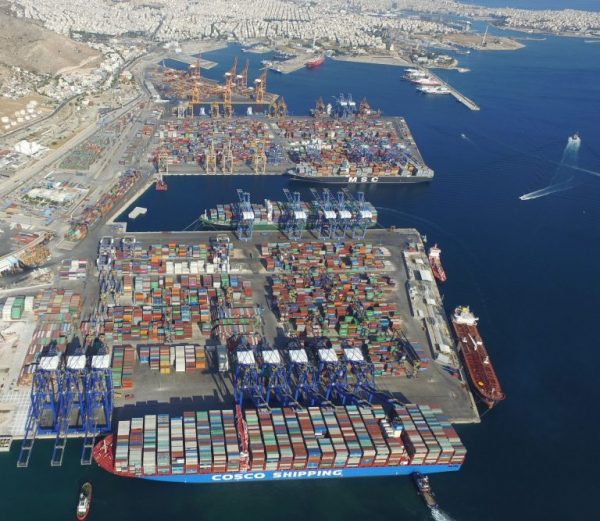
DBRS Morningstar raised Greece’s credit rating on Friday to ΒB (high), up from BB and changed the trend to Stable from Positive.
According to the German ratings firm, the “upgrades reflect DBRS Morningstar’s view that Greece continues to progress economic reforms and remains fully committed to fiscal consolidation. The economy grew by 8.3% last year and is now very close to its pre-pandemic level. Fiscal overperformance and cash management strategy in 2021 led to liquid cash reserves remaining very high, currently around EUR 41 billion. Russia’s invasion of Ukraine looks set to shave off around one percentage point from this year’s GDP growth.
“The ECB last December signaled its support to Greek government bonds. Greek banks continue to make significant progress in reducing non-performing loans (NPLs) to single digits, even with some new asset quality deterioration. Improvements in DBRS Morningstar’s building blocks of “Economic Structure and Performance”, “Debt and Liquidity” and “Monetary Policy and Financial Stability” are the key factors for the upgrades.”
In an immediate reaction, Greek Finance Minister Christos Staikouras referred to an “extremely positive development” and recognition of the progress and prospects of the (Greek) economy.
Staikouras noted that even amid successive and simultaneous external crises (pandemic, Russian invasion of Ukraine, energy prices), Greece has taken another step forward and has now come within a notch of reaching the investment grade rating.
Fitch upgraded Greece’s credit rating to “BB” on Jan. 15, referring at the time to a strong growth dynamism by the Greek economy and a reduction in the fiscal deficit, both of which will support an accelerated decrease of the public debt.
Conversely, S&P last October declined to publish a report on the Greek economy, with the next review expected in roughly five months.
The entire press release is here
Latest News

Eurozone Inflation Eases to 2.2% in March
Compared to February, inflation decreased in 16 member states, remained unchanged in one, and rose in ten.

Bank of Greece: Primary Gov. Surplus €4.1b Jan.-March 2025
The data released today by the Bank of Greece revealed that the central government’s overall cash balance recorded a surplus of €1.465 billion in the first quarter of 2025, compared to a deficit of €359 million in the corresponding period of 2024.

Greek Government Reissues 10-Year Bond Auction for €200 Million
The amount to be auctioned will be up to 200 million euros, and the settlement date is set for Friday, April 25, 2025 (T+5)

Greece Defines Continental Shelf Limits and Maritime Zones in Landmark EU Document
The Maritime Spatial Planning (MSP) framework represents a comprehensive approach to spatial planning and is crucial for the successful development of a blue and circular economy

EU Praises Greece’s RRF Progress as Revised Recovery Plan Nears Completion
Athens is preparing to submit its revised “Greece 2.0” Recovery and Resilience Plan after Easter, with a slight delay from the initial timeline but with the European Commission’s approval.

Greek €200M 10Y Bond to be Issued on April 16
The 3.875% fixed-interest-rate bond matures on March 12, 2029, and will be issued in dematerialized form. According to PDMA, the goal of the re-issuance is to meet investor demand and to enhance liquidity in the secondary bond market.

German Ambassador to Greece Talks Ukraine, Rise of Far Right & Tariffs at Delphi Economic Forum X
Commenting on the political developments in his country, the German Ambassador stressed that it was clear the rapid formation of a new government was imperative, as the expectations across Europe showed.

Athens to Return Confiscated License Plates Ahead of Easter Holiday
Cases involving court orders will also be excluded from this measure.

Servicers: How More Properties Could Enter the Greek Market
Buying or renting a home is out of reach for many in Greece. Servicers propose faster processes and incentives to boost property supply and ease the housing crisis.

Greek Easter 2025: Price Hikes on Lamb, Eggs & Sweets
According to the Greek Consumers’ Institute, hosting an Easter dinner for eight now costs approximately €361.95 — an increase of €11 compared to 2024.








![Πλημμύρες: Σημειώθηκαν σε επίπεδα ρεκόρ στην Ευρώπη το 2024 [γράφημα]](https://www.ot.gr/wp-content/uploads/2025/04/FLOOD_HUNGRY-90x90.jpg)

































 Αριθμός Πιστοποίησης
Αριθμός Πιστοποίησης